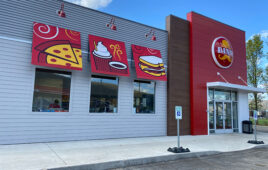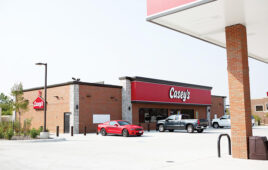 Lately, CST Brands has been under scrutiny for making some bold acquisitions that will take time to generate an optimal return on investment.
Lately, CST Brands has been under scrutiny for making some bold acquisitions that will take time to generate an optimal return on investment.
By Fran Duskiewicz
CST Brands Inc. has been in the news quite a bit these past few months, facing challenges from a couple of activist shareholder groups that have taken issue with the company’s financial performance, growth strategies and board of directors’ composition.
After the spinning off of Valero a few years ago, CST is a public company of 1,900 stores and now includes a master limited partnership called CrossAmerica Partners LP. Also, the convenience retailer has made headlines with the purchases of Nice N Easy Grocery Shoppes and Flash Foods.
Most of us have worked for private companies and have not been exposed to the extra level of stress and strain that comes with life within public companies. This story, however, means more to me than just a passing interest because we sold Nice N Easy to CST and many people I know, respect and love are still working within that organization. That makes it personal.
BUYING THE GOODS
I have to scratch my head when I read that CST has not made its strategic direction clear to its stockholders. It was very clear to us and it was why we decided to sell to them. The company knows that outstanding foodservice and larger stores with more variety are the keys to a successful future and it was able to purchase those from us, complete with knowledgeable people, good store designs and performance records that proved its success and value.
So how many multiples do you add for not having to invest heavily in R&D and to not live through several missteps with foodservice? Or for knowing how to properly stock a 7,000-square-foot store so that the extra space is productive?
In the case of Flash Foods, CST purchased a company with outstanding technology practices and a well-established loyalty program. Those are worth multiples over and above any EBITDA calculation, if you use them, which CST has been doing, implementing them in stores within its primary base of San Antonio.
I realize that there is an alternate acquisition plan for public companies. Buy a group of stores, strip away the overhead, keep your general and administrative expenses as fixed as possible and tack the profit onto the bottom line.
It works and I don’t disagree with its practice, but it isn’t always the correct path, especially when purchasing exceptional smaller private companies who are better operators than their acquirers.
In those cases, a more enlightened approach is appropriate. Nice N Easy felt that CST had that enlightened approach. Its was excited about its plan and that excited us.
The problem with doing something radically different in a new market is that it takes time to convince customers—time and patience. Apparently if recent headlines are any indication, patience is only found within private companies in the convenience industry.
People who invested in Microsoft, Apple and Amazon were forced to take a longer view, knowing that there would be miscalculations, problems and losses, but they hung tough, believing the payoff would be worth their patience. Without that patience, the spirit of innovation would die.
Is that what we want?
TAKE A BREATH
Strong regional companies have the luxury of making mistakes in the quest for new and different approaches. We consider those failures to be R&D, and sometimes R&D is considerable.
We also can be patient. Nice N Easy founder John MacDougall would never judge a store in the chain until it made it through its second summer. I’d be running around with my hair on fire and the Zen-like Mr. MacDougall would calm me down. More often than not he was correct and my knee-jerk solutions were completely wrong and misguided.
Is this not similar to the situation in which the CST decision makers find themselves lately?
Now it’s entirely possible that CST has bitten off a bit more than it can chew and maybe its reach has exceeded its grasp. But I still admire its approach to being a progressive, forward-thinking, public convenience company.
I would hate to see that plan succumb to a traditional, unexceptional mode of operation that doesn’t move our industry forward one inch or provide anything new to its customer base.




